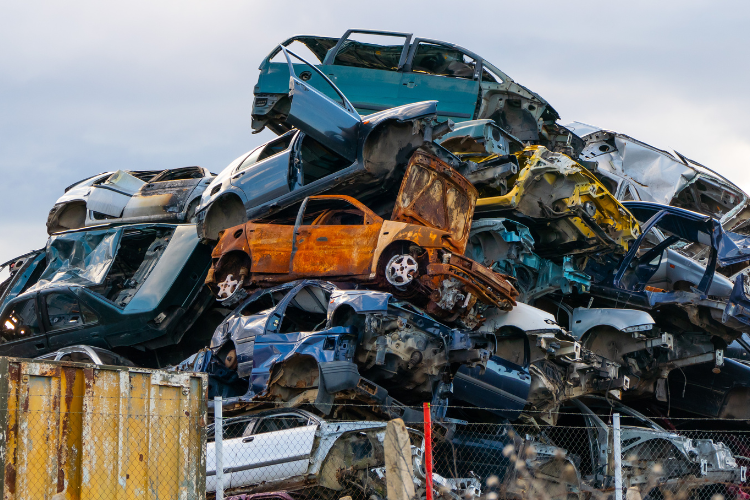In an era where environmental sustainability and economic efficiency are increasingly paramount, understanding the scrap value of your vehicle is more important than ever. The scrap value represents the monetary worth of a car when it reaches the end of its life cycle, factoring in its materials and components that can be recycled or repurposed. Many vehicle owners overlook this crucial aspect, often viewing their cars solely as depreciating assets. However, recognizing the potential financial return from scrapping a vehicle can influence decisions concerning maintenance, repairs, and even the timing of a sale. Beyond financial implications, there are also significant ecological benefits to consider; recycling automotive materials helps reduce landfill waste and conserves natural resources. By caring about your car’s scrap value, you not only make informed choices that can enhance your financial standing but also contribute positively to environmental sustainability. This article delves into the factors that determine scrap value, the process of scrapping a vehicle, and the broader implications of recycling in the automotive industry, illustrating why being aware of your car’s scrap value is a savvy and responsible consideration for every car owner.
Understanding car scrap value benefits resale opportunities in Singapore’s competitive automotive market
In Singapore’s competitive automotive market, grasping the concept of car scrap value can significantly enhance resale opportunities for vehicle owners. The scrap value of a car is determined by various factors, including the make, model, age, and condition of the vehicle, as well as the current demand for scrap materials. Understanding these elements enables owners to make informed decisions regarding their vehicle’s end-of-life options, whether they choose to trade it in, sell it privately, or scrap it for parts. This knowledge not only maximizes financial returns but also aligns with the government’s push for sustainable practices through the Vehicle End-of-Life Scheme, which incentivizes the scrapping of old vehicles while supporting the recycling of materials.
Moreover, recognizing the potential scrap value of a car can be a strategic advantage for sellers in navigating the intricacies of Singapore’s automotive landscape. As consumers increasingly seek environmentally responsible options, having a clear understanding of the scrap value can bolster a vehicle’s marketability. Sellers can effectively communicate the benefits of their vehicles’ remaining life cycles, such as their potential for refurbishment or recycling, thus appealing to a broader audience. This strategic awareness not only enhances the financial outcome of selling a vehicle but also contributes to a more sustainable automotive ecosystem in Singapore.
The scrap value of your car can significantly impact your overall vehicle ownership costs
The scrap value of a car plays a crucial role in shaping the overall costs associated with vehicle ownership. In Singapore, where car ownership comes with substantial financial commitments such as taxes, insurance, and maintenance, the potential return from the car’s scrap value can mitigate some of these expenses. By factoring in this residual value, owners can better assess their vehicle’s total cost of ownership, helping them to make more strategic decisions about upgrades or replacements. When the time comes to dispose of a vehicle, understanding its scrap value can lead to a more favorable financial outcome, effectively recouping some of the costs incurred during its useful life.
Additionally, the fluctuating nature of scrap metal prices can directly influence the scrap value of a car, thereby impacting the financial calculations of ownership. For instance, a higher scrap value during vehicle disposal can alleviate the burden of depreciation, which is a significant concern for many owners. This underscores the importance of staying informed about market trends and the condition of the vehicle over time. By doing so, vehicle owners in Singapore can optimize their financial strategy, ensuring that they capitalize on the scrap value of their car when it reaches the end of its operational life.
Maximizing your car’s scrap value ensures you receive fair compensation when retiring your vehicle
Maximizing your car’s scrap value is essential for ensuring that vehicle owners in Singapore receive fair compensation at the end of their car’s life cycle. The scrap value of a car is determined by various factors, including its age, condition, and the current market demand for scrap metals. By taking proactive steps to maintain the vehicle and keep it in good condition, owners can significantly enhance its scrap value. This not only requires attention to minor repairs but also involves keeping the vehicle’s documentation in order and considering the timing of disposal based on market conditions.
Furthermore, engaging with reputable scrap dealers who provide transparent evaluations can lead to better offers. Understanding the components that contribute to the scrap value of a car, such as valuable metals and parts, empowers owners to negotiate effectively. In a competitive market like Singapore, where regulations and environmental considerations are increasingly relevant, being informed about the scrap value of your car can pave the way for a smoother and more profitable retirement process for the vehicle.
In conclusion, understanding your car’s scrap value is essential for anyone navigating the Singapore car market. With the country’s unique regulations and growing emphasis on sustainability, knowing the potential worth of your vehicle at the end of its life can significantly influence your financial decisions. Whether you’re considering upgrading to a newer model or simply looking to dispose of an aging vehicle, being informed about scrap value not only helps you maximize your returns but also aligns with environmentally responsible practices. As Singapore continues to evolve towards a greener automotive landscape, recognizing the importance of scrap value will empower car owners to make informed choices that benefit both their wallets and the planet.

